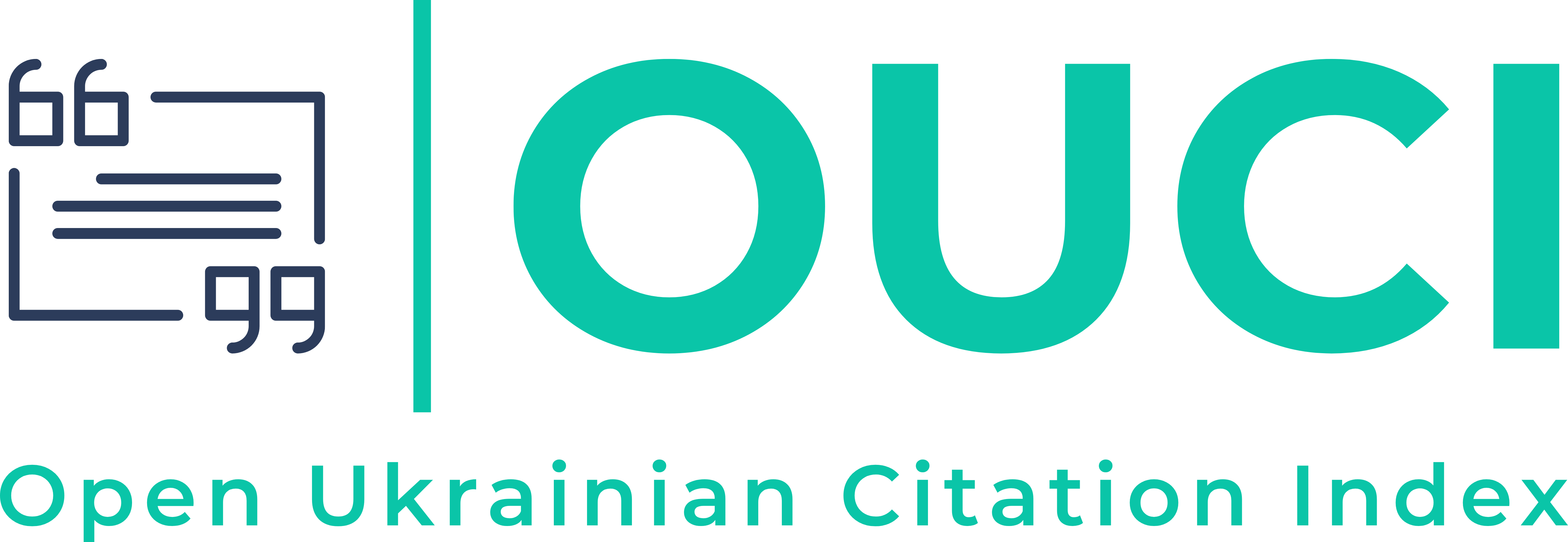Repatriation Rights of Rohingya Refugees in Bangladesh: Applying UN Human Rights Principles
Abstract
Bangladesh, known for its high population density, has become a significant destination for Rohingya refugees fleeing abuse and persecution, including women and children. This influx has created numerous challenges for the host country, which is struggling to accommodate and support these displaced individuals while safeguarding national security. This study examines the right to repatriation for the Rohingya in Bangladesh and the United Nations human rights principles about refugee deportation. Moreover, the study proposes how those principles might be applied to Myanmar regarding Rohingya repatriation. The research explores the responsibilities of both the UN and states in addressing this issue by analyzing secondary sources such as articles, books, reports, and online materials, as well as international treaties and conventions. The findings indicate that the Rohingya refugees desire to return to their homeland, Myanmar, and possess the right to repatriation according to UN principles. Despite Myanmar's non-ratification of the Refugee Convention of 1951, it remains obligated under international instruments to facilitate the return of the Rohingya.
Downloads
References
Abrar, C. R. (1995). Repatriation of Rohingya refugees. Paper presented at UNHCR’s Regional Consultation on Refugee and Migratory Movements, Colombo, Sri Lanka. Retrieved from http://www.networkmyanmar.org/ESW/Files/Abrar-NM-Repatriation_of_Rohingya_refugees-en.pdf
Adnan, S. (2014). Rethinking food sovereignty in a limiting context: Refugees from Myanmar in Bangladesh without land and citizenship. Paper presented at Food Sovereignty: A Critical Dialogue, Program in Agrarian Studies, Yale University. Available in the working paper series from the International Institute of Social Studies. Retrieved from https://www.iss.nl/sites/corporate/files/2022-02/Rethinking%20food%20sovereignty%20in%20a%20limiting%20context.pdf
Ahsan Ullah, A. K. M. (2016). Rohingya crisis in Myanmar. Journal of Contemporary Criminal Justice, 32(3), 285–301. https://doi.org/10.1177/1043986216660811
Alam, J. (2019). The current Rohingya crisis in Myanmar in historical perspective. Journal of Muslim Minority Affairs, 39(1), 1–25. https://doi.org/10.1080/13602004.2019.1575560
Azad, A., & Jasmin, F. (2013). Durable solutions to the protracted refugee situation: The case of Rohingyas in Bangladesh. Journal of Indian Research, 1(4), 25–35.
Babu, K.-K. (2020). The impacts and challenges to host country Bangladesh due to sheltering the Rohingya refugees. Cogent Social Sciences, 6(1). https://doi.org/10.1080/23311886.2020.1770943
Bagheri, S., & Bisset, A. (2022). International legal issues arising from repatriation of the children of Islamic State. Journal of Conflict and Security Law, 27(3), 363–385. https://doi.org/10.1093/jcsl/krac013
Bahadur, A. V., & Tanner, T. (2014). Policy climates and climate policies: Analysing the politics of building urban climate change resilience. Urban Climate, 7, 20–32. https://doi.org/10.1016/j.uclim.2013.08.004
Barnett, M. N. (1999). UNHCR and involuntary repatriation: Environmental developments, the repatriation culture, and the Rohingya refugees [Paper presentation]. 41st Annual Convention, International Studies Association, Los Angeles, California. Retrieved from https://ciaotest.cc.columbia.edu/isa/bam01/
Billah, M. (2021). Prosecuting crimes against humanity and genocide at the International Crimes Tribunal Bangladesh: An approach to international criminal law standards. Laws, 10(4), 1–34. https://doi.org/10.3390/laws10040082
Billah, M., & Saripan, H. (2024). Proving modes of criminal liability in prosecuting international crimes: An analysis of International Crimes Tribunal Bangladesh. Malaysian Journal of Social Sciences and Humanities (MJSSH), 9(2), e002211. https://doi.org/10.47405/mjssh.v9i2.2211
Billah, M., Mahbub, F., & Nisa, T. B. (2022). The impact of the political interference on prosecuting international crimes: An experience from the International Crimes Tribunal Bangladesh. Hong Kong Journal of Social Sciences, 58(1), 607–617.
Billah, M., Rahmat, N., Hassan, C., & Kabir, M. (2024). Ex post facto prosecution of international crimes in the Bangladesh War Crimes Tribunal: An issue of constitutionality. Malaysian Journal of Social Sciences and Humanities (MJSSH), 9(2), e002236. https://doi.org/10.47405/mjssh.v9i2.2236
Chimni, B. S. (2004). From resettlement to involuntary repatriation: Towards a critical history of durable solutions to refugee problems. Refugee Survey Quarterly, 23(3), 55–73. https://doi.org/10.1093/rsq/23.3.55
Forster, R. (2011). Magh marauders, Portuguese pirates, white elephants and Persian poets: Arakan and its Bay‑of‑Bengal connectivities in the early modern era. Explorations: A Graduate Student Journal of Southeast Asian Studies, 11(1), 63–80. Center for Southeast Asian Studies, University of Hawai‘i at Mānoa. https://hdl.handle.net/10125/20311
Goodwin-Gill, G. S. (1995). Unaccompanied refugee minors. The International Journal of Children’s Rights, 3(3–4), 405–416. https://doi.org/10.1163/157181895x00186
Gorlick, B. (2019). The Rohingya refugee crisis: Rethinking solutions and accountability. SSRN Electronic Journal. https://doi.org/10.2139/ssrn.3506638
Hathaway, J. C. (1997). The meaning of repatriation. International Journal of Refugee Law, 9, 551.
Ighodaro, M. E. (2002). A critical anti-racist interrogation of voluntary/forced repatriation theory: The intersections of African refugees' dilemma. Refuge, 21, 49.
International Organization for Migration. (2018, March). Rohingya humanitarian crisis response. https://www.iom.int/news/iom-scales-humanitarian-response-rohingya-crisis-ahead-monsoon-season
Islam, M. T., Mia, M. T., & Islam, M. (2021). The right to nationality & repatriation under international law: A study of Biharis in Bangladesh. Journal of Indonesian Legal Studies, 6, 251. https://heinonline.org/HOL/LandingPage?handle=hein.journals/jils6&div=18&id=&page=
Islam, M. Z., & Karim, R. (2016). The major problems of the Rohingyas of Myanmar (Burma) and the present situation. Journal of Asian and African Social Science and Humanities, 2(4), 34–43. http://www.aarcentre.com/ojs3/index.php/jaash/article/view/97
Islam, M., Islam, M. T., Mia, M. T., & Islam, M. Z. (2022). The application of international laws in Bangladesh: A critical evaluation. Unnes Law Journal: Jurnal Hukum Universitas Negeri Semarang, 8(1), 207–224. https://doi.org/10.15294/ulj.v8i1.56458
Jalil, M. A., & Mia, M. T. (2021). The role of Padma multipurpose bridge in the national sustainable development in Bangladesh. Journal of Asian and African Social Science and Humanities, 7(1), 38–53. http://www.aarcentre.com/ojs3/index.php/jaash/article/view/235
Khatun, F. (2017). Implications of the Rohingya crisis for Bangladesh. Dhaka, Bangladesh: Centre for Policy Dialogue (CPD).
Lewa, C. (2011). Unregistered Rohingya refugees and the kutupalong makeshift site [Unpublished manuscript or embassy report]. Canadian High Commission, Dhaka.
Milton, A. H., Rahman, M., Hussain, S., Jindal, C., Choudhury, S., Akter, S., ... & Efird, J. T. (2017). Trapped in statelessness: Rohingya refugees in Bangladesh. International Journal of Environmental Research and Public Health, 14(8), 942. https://doi.org/10.3390/ijerph14080942
Nawoyski, K. (2013). Genocide emergency: Violence against the Rohingya and other Muslims in Myanmar. Genocide Watch. Retrieved from https://genocidewatch.com/single-post/genocide-emergency-rohingya-in-maungdaw-rakhine-state-myanmar
Oxfam International (n.d.). Bangladesh Rohingya refugee crisis. https://www.oxfam.org/en/what-we-do/emergencies/bangladesh-rohingya-refugee-crisis
Parnini, S. N., Othman, M. R., & Ghazali, A. S. (2013). The Rohingya refugee crisis and Bangladesh-Myanmar relations. Asian and Pacific Migration Journal, 22(1), 133–146. https://doi.org/10.1177/011719681302200107
Pittaway, E. (2015). Life in limbo: Unregistered urban refugees on the Thai–Burma border. In Urban Refugees (pp. 164–186). Routledge.
Rosand, E. (1997). The right to return under international law following mass dislocation: The Bosnia precedent. Michigan Journal of International Law, 19, 1091.
Shams, S., & Wolf, S. O. (2015). Myanmar's Rohingya conflict is more economic than religious. Deutsche Welle. Retrieved from https://p.dw.com/p/1Fbhu
Shukla, K., & Thompson, L. (2005). Bangladesh: Burmese Rohingya refugees virtual hostages. Refugee International, 9.
Susetyo, H., & Chambers, P. (2020). Repatriation for Rohingya asylum seekers in Indonesia: A durable but almost impossible solution. Asian Affairs: An American Review, 47(2), 63–84. https://doi.org/10.1080/00927678.2020.1833414
Uddin, M. A. (2021). The meaning of marriage to the Rohingya refugees and their survival in Bangladesh. Journal of Refugee Studies. https://doi.org/10.1093/jrs/feaa054
UNHCR. (2015). Angola: 2015 year-end report summary. United Nations High Commissioner for Refugees. https://reporting.unhcr.org/angola-2015-year-end-report-summary
UNHCR. (2018, March). Rohingya emergency. United Nations High Commissioner for Refugees. https://www.unhcr.org/rohingya-emergency.html
United Nations General Assembly. (2017, December 24). Situation of human rights in Myanmar: Resolution adopted by the General Assembly (A/RES/72/248). https://undocs.org/A/RES/72/248
United Nations Office for the Coordination of Humanitarian Affairs. (2017, October 23). Rohingya crisis in numbers. https://www.unocha.org/publications/report/bangladesh/rohingya-crisis-numbers
Wolf, S. O. (2017). Genocide, exodus, and exploitation for jihad: The urgent need to address the Rohingya crisis(SADF Working Paper No. 6). South Asia Democratic Forum. Retrieved from https://www.sadf.eu/sadf-working-paper-6-genocide-exodus-exploitation-jihad-urgent-need-address-rohingya-crisis-siegfried-o-wolf/
Zahed, I. U. M. (2021). Responsibility to protect? The international community’s failure to protect the Rohingya. Asian Affairs, 52(4), 934–957. https://doi.org/10.1080/03068374.2021.1984477
Human Rights Watch. (2013, April 22). “All you can do is pray”: Crimes against humanity and ethnic cleansing of Rohingya Muslims in Burma’s Arakan State (Publication No. 118). Chapter: Northern Arakan State comprises Maungdaw, Rathedaung, and Buthidaung townships. Human Rights Watch. https://www.hrw.org/report/2013/04/22/all-you-can-do-pray/crimes-against-humanity-and-ethnic-cleansing-rohingya-muslims
Centre for Policy Dialogue. (2017, November 11). Addressing Rohingya Crisis: Options for Bangladesh (dialogue transcript). CPD website. https://cpd.org.bd/solution-rohingya-crisis-lies-myanmar/

















